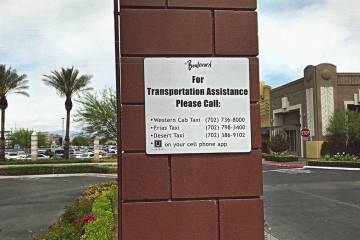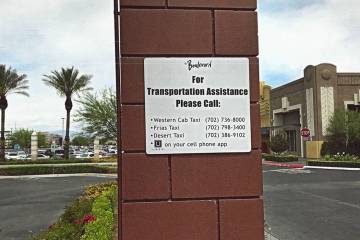State audits reveal eye-opening issues at Nevada agencies
State audits rarely get much attention unless the legislative auditor finds something outrageous. Then it’s headline-making news.
Performance audits are released, the news media look for the jaw-dropping, big-buck stuff, and the other items are mostly ignored by journalists and the public.
But two audits released in December caught my eye, and not in a good way.
Auditors found the Department of Education needed to do far more and act faster in revoking licenses of employees with criminal histories.
And they found the Department of Public Safety paid $68,900 to a consultant who in 2013 made 147 recommendations on how to improve the evidence vault. The Public Safety folks agreed with the recommendations, yet did not have a plan to fix the more than 100 other problems identified.
One audit deals with the safety of our children, the other deals with the handling of money seized from criminals. Both are unsettling.
The legislative audit of the Education Department’s Office of Educator Licensure, formerly the Office of Teacher Licensure, found it needed to strengthen its processes for revoking licences, issuing provisional licenses and, most importantly in my opinion, tracking and reviewing criminal history reports.
Big flaw found: The office does not have regulations requiring notification in a timely manner when an educator is arrested. Out of the 13 revocation cases the auditors examined, the office found out about it on an average of 367 days later, or more than a year. In one case, it took the Office of Educator Licensure 1,200 days to find out about an arrest.
Some of the blame falls on school districts, which failed to notify the licensing office. Officials said they learned about some arrests through the news.
Another big failure: The Office of Educator Licensure has the authority but hasn’t used it to revoke a license when a crime involving moral turpitude has been committed.
In five cases in which licenses were revoked, the time period between conviction and license revocation lasted 189 days, 375 days, 579 days, 597 days and 660 days. Because the teachers still had active licenses, it was possible for them to move to another part of the state and get another job.
In five more cases involving arrests in connection with sex-related crimes, there were no case files in the licensure office.
Superintendent Dale Erquiaga said certain steps have been taken to correct problems pinpointed by the auditors. So did Public Safety Director James Wright.
Both the Education and Public Safety departments accepted the auditor’s recommendations.
But accepting them is one thing, acting on them is another.
The Department of Public Safety failed to enact 102 of 147 recommendations involving evidence vaults handled by law enforcement officers.
One major failing involving money seized and subject to forfeiture wasn’t processed quickly.
Out of 205 currency seizures examined, 60 percent (124) were either not deposited within 48 hours in the state forfeiture account or handed over to the feds.
While the Department of Public Safety has a policy of turning over the money in 48 hours, The auditors found it was an average of 27 days before currency was deposited in cases where it’s not clear if it’s a state or federal case.
In one case involving $4,000, the money was held for nearly two years. In another, $2,040 was not deposited or turned into a cashier’s check for five months. In a third, $4,760 wasn’t deposited per policy for three months.
Anyone who has watched a cop show knows that a license to steal.
On top of that, two other problems were identified by auditors. The vault staff didn’t keep a running tally of all the currency in the vault. And there was no inventory taken to identify who had keys and key cards to the vault.
License to steal or invitation to steal? How tough would it be to fix those two problems a long time ago?
Wright said the delays were caused by the time it took to figure out whether the state or federal agencies should take the lead on cases and that 48 hours was too short a time to decide that. So it was agreed that the state should have five business days to either deposit the money and get a cashier’s check or give the money to federal officials.
The department handled about $3.5 million in currency seizures during fiscal years 2011 to 2013, so this isn’t petty cash we’re discussing.
The auditors who uncovered these problems deserve a hooray for doing their jobs and doing some deep digging in their performance audits of every state office.
All the audits are online, so if you are curious about one, go to www.leg.state.nv.us/audit.
It’s always encouraging to find one, as I have, with minimal problems to report.
Jane Ann Morrison’s column appears Thursday. Email her at Jane@reviewjournal.com.






















